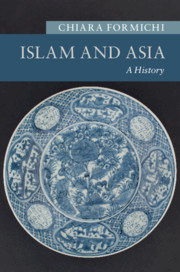Book contents
- Islam and Asia
- New Approaches to Asian History
- Islam and Asia
- Copyright page
- Dedication
- Contents
- Figures
- Maps
- Boxes
- Sources
- Preface
- Acknowledgments
- Note on Transliteration and Foreign Terms
- Maps
- Introduction
- 1 Islam across the Oxus (Seventh to Seventeenth Centuries)
- 2 Becoming Muslim (Seventh to Eighteenth Centuries)
- 3 Networks and Renewal (Thirteenth to Nineteenth Centuries)
- 4 Pan-Islamism and Nationalism (Nineteenth and Twentieth Centuries)
- 5 Muslims in the Nation-State (1940s to 1960s)
- 6 New Imaginations of Piety (1960s to 1990s)
- 7 Islam as Resistance
- 8 De-centering Islamic Authority
- 9 Studying Asia and Islam
- Glossary
- Notes
- Index
- New Approaches to Asian History
- References
5 - Muslims in the Nation-State (1940s to 1960s)
Published online by Cambridge University Press: 16 April 2020
- Islam and Asia
- New Approaches to Asian History
- Islam and Asia
- Copyright page
- Dedication
- Contents
- Figures
- Maps
- Boxes
- Sources
- Preface
- Acknowledgments
- Note on Transliteration and Foreign Terms
- Maps
- Introduction
- 1 Islam across the Oxus (Seventh to Seventeenth Centuries)
- 2 Becoming Muslim (Seventh to Eighteenth Centuries)
- 3 Networks and Renewal (Thirteenth to Nineteenth Centuries)
- 4 Pan-Islamism and Nationalism (Nineteenth and Twentieth Centuries)
- 5 Muslims in the Nation-State (1940s to 1960s)
- 6 New Imaginations of Piety (1960s to 1990s)
- 7 Islam as Resistance
- 8 De-centering Islamic Authority
- 9 Studying Asia and Islam
- Glossary
- Notes
- Index
- New Approaches to Asian History
- References
Summary
If the anti-colonial experience had created solidarity networks harnessed to the idea of an interconnected umma, the emergence of nation-states set new frames of reference. In the “post-colonial moment” transnational networks of solidarity took form along leftist, Third-Worldist, labor unionist, or feminist ideologies. Islam only occasionally emerged as a site of connection. As secular ideologies came to rule Muslim communities, some sectors of these populations set out to re-insert Islam into the picture, sometimes in the realm of politics, sometimes in society, either through peaceful or violent means. But regardless of their intellectual scope or strategic modalities, the territorial unit of reference remained the nation-state. This was also evident for Muslim minority communities, even when their self-identified cultural-geographical expanse did not match extant political boundaries. Minorities’ concerns and desires pertained to being recognized as legitimate constituencies with their own self-determined identities. This chapter reflects on how Muslims, in both majority and minority contexts, have interfaced with broader societal communities and states to (re)define the role of religion in the "post-colonial moment" from specific case studies of Indonesia, Pakistan, the Soviet Republics of Central Asia, Singapore, India, and Burma/Myanmar.
Keywords
- Type
- Chapter
- Information
- Islam and AsiaA History, pp. 142 - 175Publisher: Cambridge University PressPrint publication year: 2020

